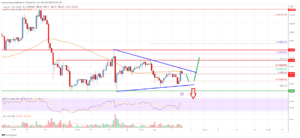
Investing in private markets has become increasingly popular in recent years, as investors look for ways to diversify their portfolios and seek higher returns. Private markets refer to investments in privately held companies, real estate, private equity, and other non-publicly traded assets. These investments are typically made by institutional investors, high net worth individuals, and family offices.
One of the primary benefits of investing in private markets is the potential for higher returns. Private companies and real estate investments often have the potential to generate higher returns than publicly traded securities due to their illiquidity and lack of transparency. Private equity investments, for example, have historically outperformed public equities over the long term.
Another advantage of investing in private markets is the ability to access a wider range of investment opportunities. Private markets offer access to a diverse set of asset classes that are not available in public markets. This includes investments in startups, venture capital, real estate, and infrastructure projects. By diversifying their portfolios across different asset classes, investors can reduce their overall risk and potentially increase their returns.
Private markets also offer investors greater control over their investments. Unlike publicly traded securities, private market investments are not subject to the same level of market volatility and are not influenced by short-term market trends. This allows investors to take a longer-term view of their investments and make strategic decisions based on their own investment objectives.
Another benefit of investing in private markets is the potential for greater transparency and access to information. Private market investments often require more due diligence and research than publicly traded securities, which can provide investors with a deeper understanding of the underlying assets and potential risks associated with their investments.
However, investing in private markets also comes with its own set of risks. Private market investments are often illiquid, meaning they cannot be easily bought or sold on an exchange. This lack of liquidity can make it difficult for investors to exit their positions or realize their returns in a timely manner. Additionally, private market investments are often subject to higher fees and expenses than publicly traded securities.
In conclusion, private markets can be a valuable addition to a diversified investment portfolio. By providing access to a wider range of asset classes, potential for higher returns, and greater control over investments, private markets can help investors achieve their long-term investment objectives. However, investors should carefully consider the risks associated with private market investments and seek professional advice before making any investment decisions.
- SEO Powered Content & PR Distribution. Get Amplified Today.
- PlatoAiStream. Web3 Intelligence. Knowledge Amplified. Access Here.
- Source: Plato Data Intelligence: PlatoData










